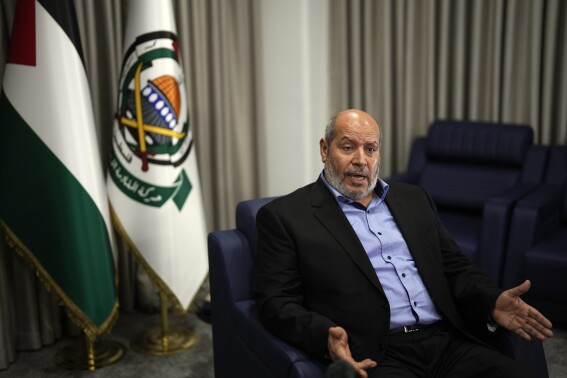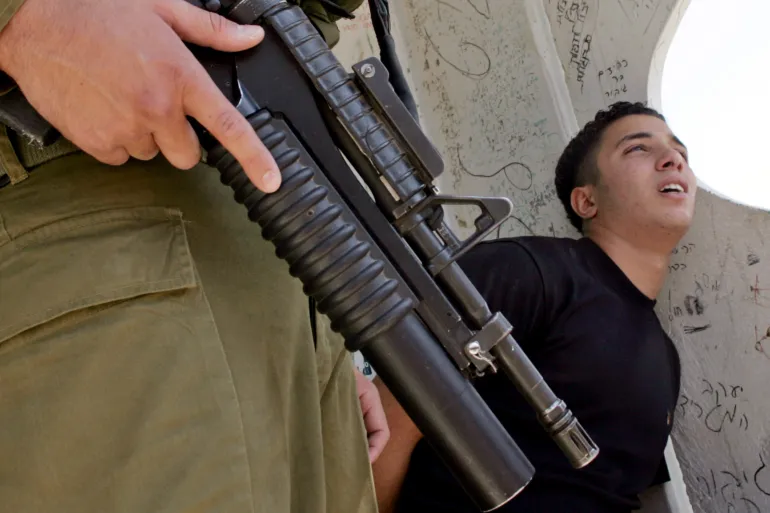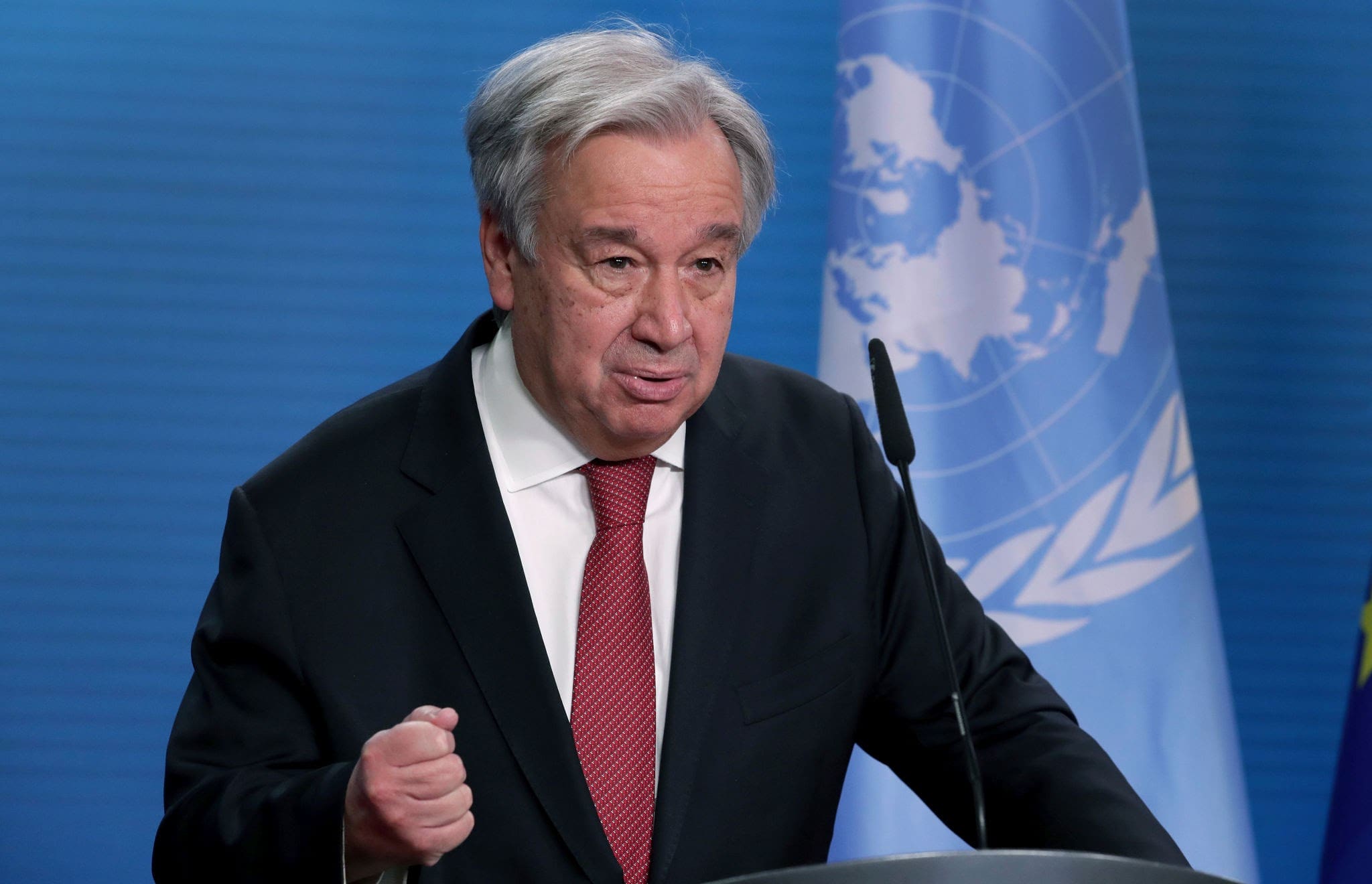Numerous human rights organizations operate in Gaza and the West Bank, aiming to document and address violations faced by the population. These organizations, such as B’Tselem, Yesh Din, and Addameer, focus on various aspects of human rights, including legal advocacy, documenting abuses, and providing support to detainees. They seek to hold both Israeli authorities and local leadership accountable, striving to ensure that international human rights standards are upheld.
the human rights fighters – the organisations’ workers
Yesh Din is an Israeli human rights organization established in 2005, dedicated to documenting and exposing human rights violations in the West Bank and Gaza Strip.
Mourad Jadallah, a field investigator for Yesh Din has been documented in 2013 praising Hamas terrorists and even photographed with them. On his Twitter account, Jadallah posted tweets lauding militants who terrorized Israeli streets, such as Yahya Ayyash, known as “The Engineer,” and Hassan Salameh, a senior figure in Hamas’ military wing. Jadallah referred to these two, responsible for the deaths of over 150 Israelis, as “Palestinian legends.”
In addition to his admiring tweets, In 2013 Jadallah shared photos with Salah Hamouri, an East Jerusalem resident who was imprisoned in Israel for planning the murder of Rabbi Ovadia Yosef. Jadallah and Hamouri worked together in the Palestinian prisoner organization Addameer. Through his role there, Jadallah interacted with numerous Palestinian prisoners, including those with blood on their hands. Numerous materials online reveal his extreme positions and regard for militants. Jadallah has represented Addameer on various international platforms, widely exposing his views and stances.
Murad Jadallah still worked for Yesh Din in 2024.
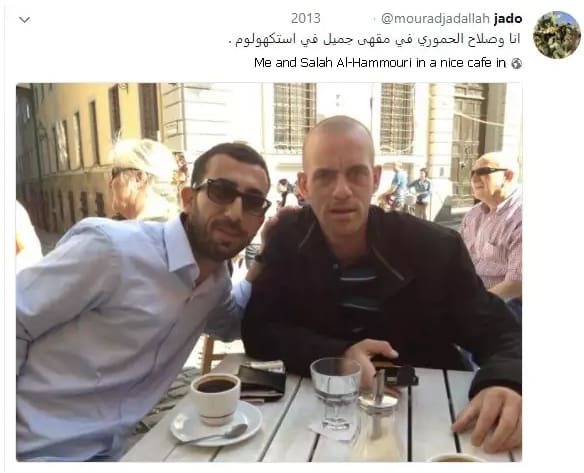
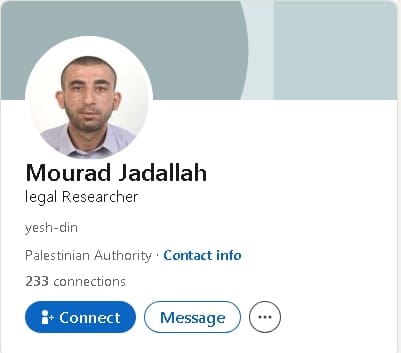
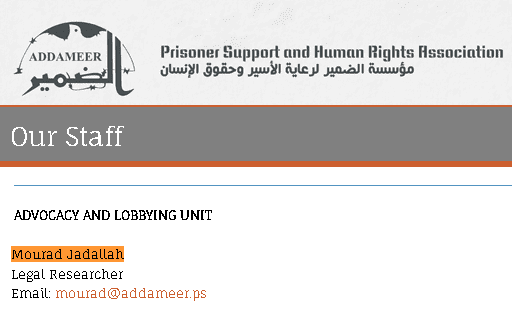
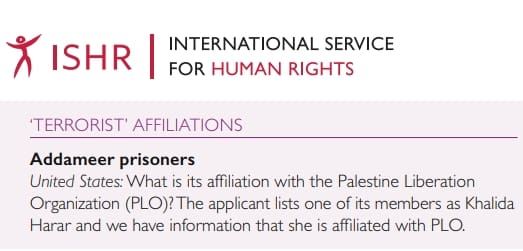
Jadallah was active for several years in the Palestinian prisoner organization Addameer, known for its connections with militants and terrorist organizations. Addameer is affiliated with the Popular Front for the Liberation of Palestine (PFLP), and during Rabin’s government, it was expelled from Jerusalem and relocated to Ramallah. Khalida Jarrar, former vice-chair of Addameer, was a senior member of the PFLP and faced charges for security offenses, including incitement to kidnap soldiers for negotiation purposes.
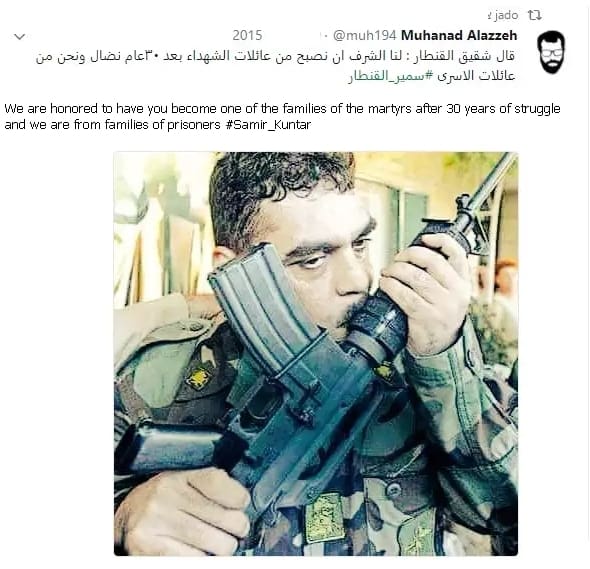
In 2015, Jadallah shared Muhanad Alazzeh quote of Al-Kuntar’s brother writing in his praise: We are honored to have you become one of the families of the martyrs after 30 years of struggle. Samir Kuntar was designated a Specially Designated Global Terrorist by the US government, a member of the Palestine Liberation Front and Hezbollah, that On 1979, at the age of 16, participated in the killing of an Israeli policeman and the attempted kidnapping of an Israeli family in Nahariya.
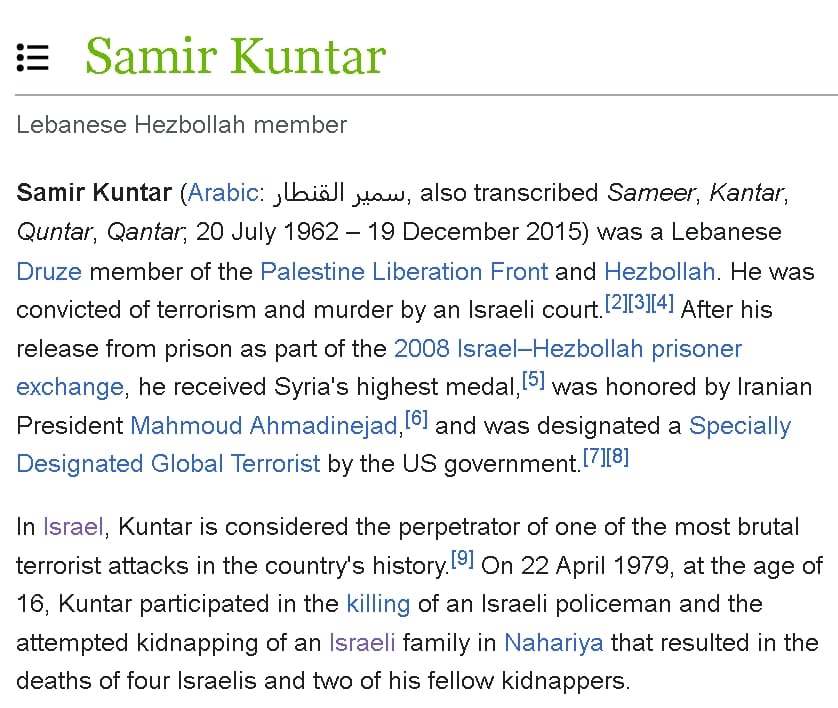
In 2017, Jadallah shared the Palestinian Prisoners’ tweet praising Prisoner Hassan Salama, commander of the holy revenge operations for the assassination of the martyr Yahya Ayyash, carried out 3 martyrdom operations that led to the death of 46 and the wounding of dozens with various injuries. Yahya Abd-al-Latif Ayyash was the chief bombmaker of Hamas and the leader of the West Bank battalion of the ad-Din al-Qassam Brigades. Hhe earned the nickname “the Engineer”. He is credited with advancing the technique of suicide bombing in the Israeli–Palestinian conflict. The bombings he orchestrated killed approximately 90 Israelis.
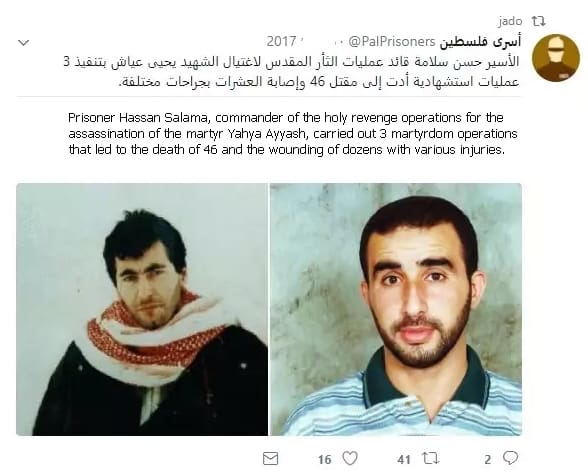
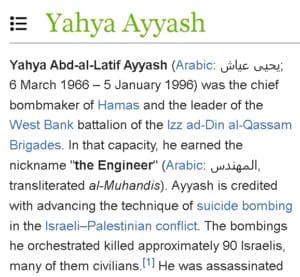
Why do human rights organizations employ a Palestinian activist with known connections to militants?
Jadallah contributed for example to a report on the conditions of Palestinian minors in East Jerusalem. His employment at human rights organizations raises questions: Are these individuals supposed to document “human rights violations” within Israeli organizations? Was his past and stance towards terrorist organizations and militants not examined?
To document the reality on the ground, organizations like Yesh Din and others rely on Palestinian field investigators. Naturally, these employees bring Palestinian worldviews. Often, these perspectives conflict with the principles that human rights organizations aim to represent. On social media, these workers frequently express views supporting the Palestinian struggle, a single Palestinian state, the right of return, and boycotts of Israel.
Source: Makor Rishon

